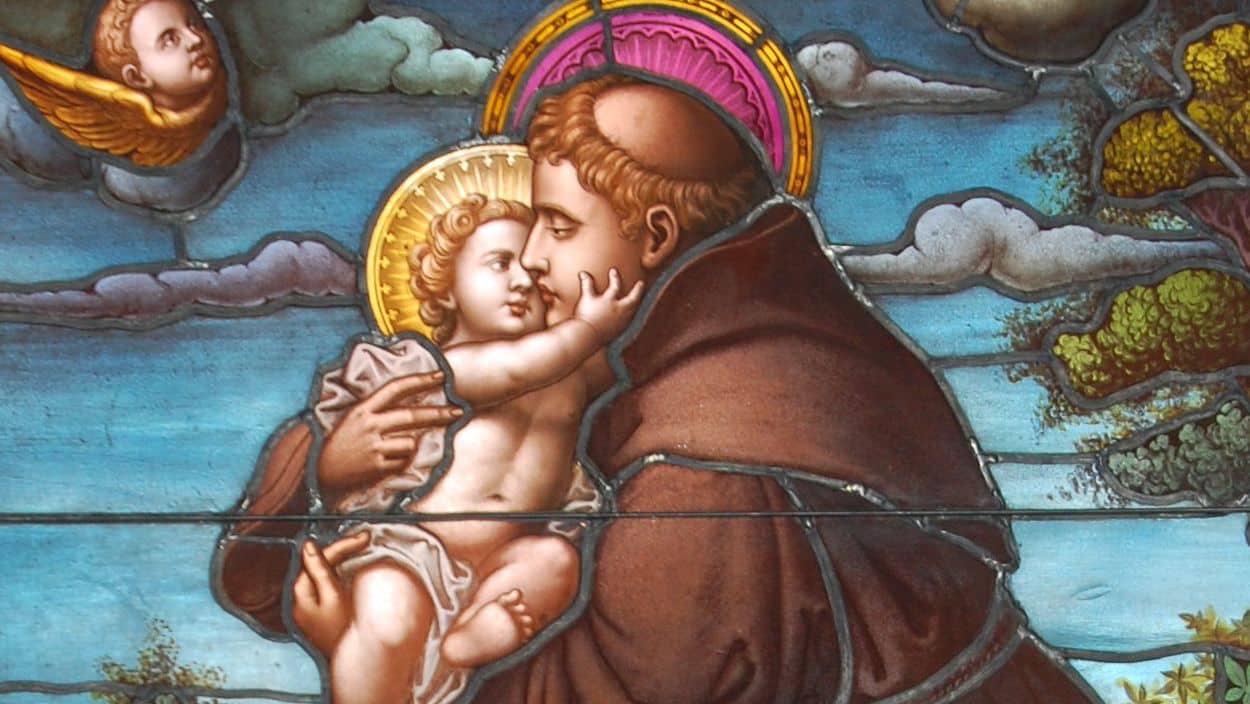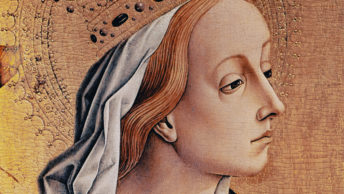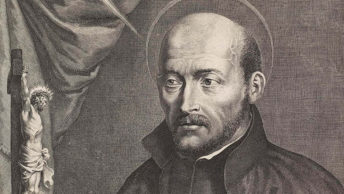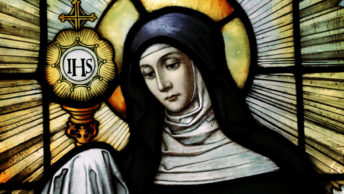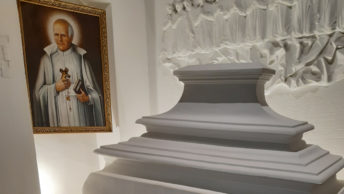St. Anthony of Padua, whose feast day we celebrate on June 13, was a man of many virtues who had attained that disposition sought out by those who can love genuinely: authentic humility. His was not a deliberately put-on sense of humility, an act of poverty of spirit merely when he had a captive audience. He actually had the real thing.
At 15, the youthful saint-in-the-making joined the regular canons of St. Augustine. Eventually, spiritually spurred on by the example of five friars who had been martyred by the Moors, he chose to become a member of the Franciscan Order. In time, his response to his calling proved quite fruitful. Following the Will of God usually has a habit of nourishing things, causing them to blossom and grow still further in beauty and magnificence.
Borrowing his great religious name from St. Anthony of Egypt, a third-century hermit hailed as the Father of Monasticism who lived to be 105, Anthony of Padua took up his daily chore of dishwashing with pleasure, even with thankfulness. It was his steadfast humility which allowed him to not only cope with his work but to empty himself into it. And it was an emptying of self, a tremendous zeal for the love of Christ and all that it encompassed, that Anthony applied to every aspect of his life. He did not permit his life to be a dull one. He refused it. His was one of simplicity certainly but not one of boredom. When he was directed to do something or set his mind to it, it was accomplished, not with the least amount of effort but with the fullest.
The holy man had fully taken to memory several books from both the Old and New Testaments. In his lifetime, one of his splendid theological and literary works was his commentary on the Psalms. Once his keen knowledge and passion for Sacred Scripture was realized (particularly by St. Francis of Assisi himself), Anthony was drafted into the crucial service of preaching and teaching.
His advanced learning, dedicated memory, and effective speaking skills were among the highest of his God-granted gifts. Due to his monumental contributions to the Church and her teachings, he has been designated one of the 36 Doctors of the Church. It was on account of Anthony’s excellent familiarity with Sacred Scripture that Pope Gregory IX referred to him as the “Ark of the Testament.”
This Temple of the Holy Spirit must have been a fond dwelling place for Our Lord, a congregation of virtues, a powerhouse of knowledge of the truth. Anthony faced solitude, loneliness, and perhaps a feeling of a lack of accomplishment, yet he was able to come out triumphant over such obstacles because of his whole and utter outpouring of self. And he was at peace with it. It was humility, piety, and a limitless zeal for service that allowed this knowledgeable young priest and friar to become such a welcoming abode for Christ.
Our Lord dwelt often with St. Anthony, and the friar’s relationship with his Savior grew deeper and deeper until he had the supernatural joy of experiencing heaven on earth. His gift was not merely a vision; it was flesh and blood. Out of St. Anthony’s habitual virtuous conduct, he was granted a unique gift: fondling the baby Jesus in his own arms. Here was the Beatific Vision, the Face of God, in the peaceful, pure, and innocent face of a child.
For a brief moment in his earthly pilgrimage, Anthony had the honor of acting in the place of St. Joseph as he supported, caressed, and loved the Christ-Child resting with him. If only we were to endeavor toward those virtues of St. Anthony, then maybe we might start to see Christ dwelling with us more readily. By following the humble friar’s model of life, we can grow in a more personal and loving relationship with Christ. We may or may not obtain all the tenderness of a saint here on earth, but in truly loving God, we shall certainly find ourselves alongside St. Anthony and the choirs of saints in heaven.

